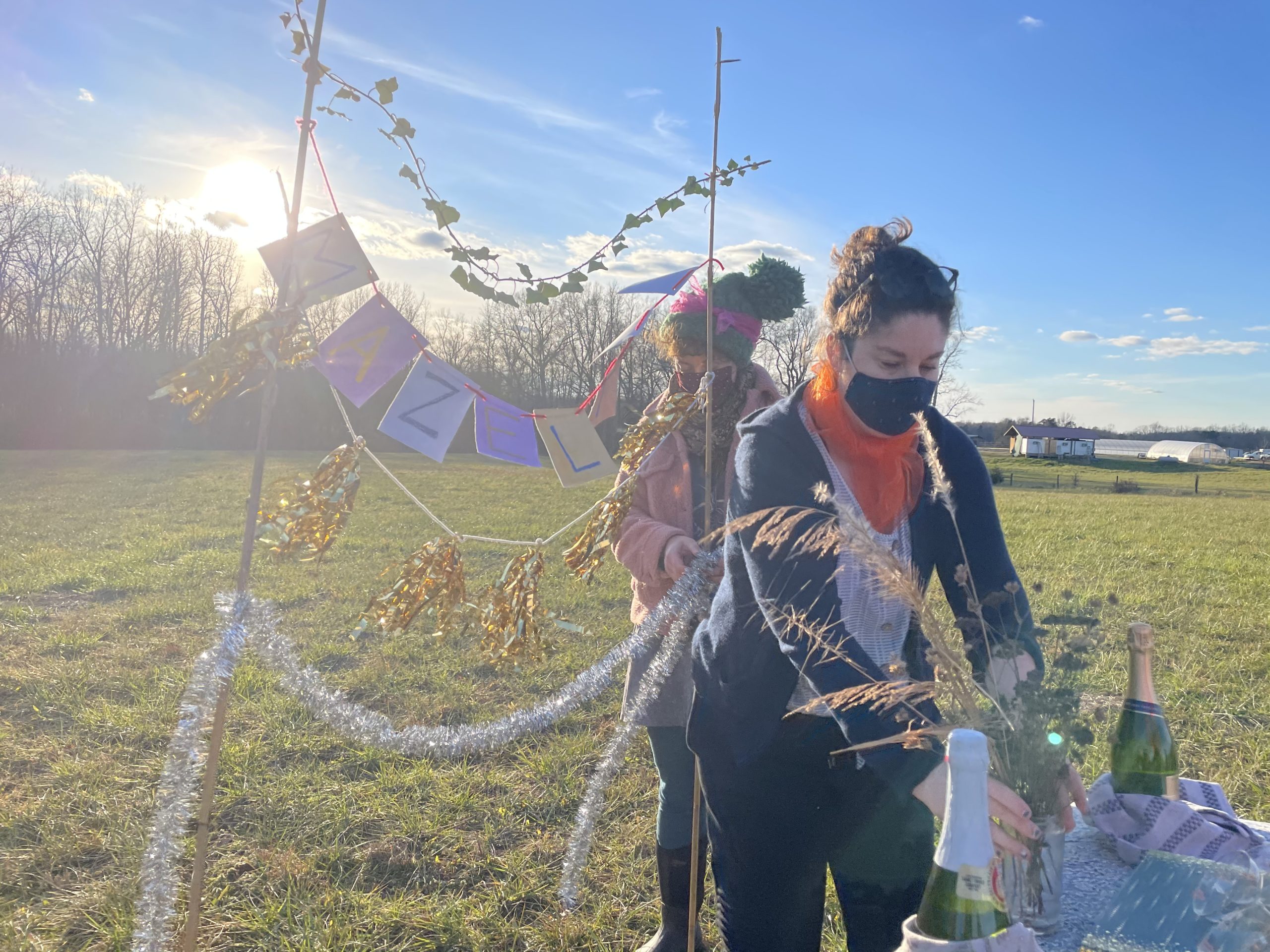
A Southern Jewish Farmer?!
Tu Bshvat is the time of year when, as a Jewish farmer and educator, I am most in demand––since it’s a holiday when Jews are very explicitly invited to engage with nature, trees, and the species that sustain us. And a holiday that––in our North American seasons––happens to fall during the middle of winter, which provides an interesting challenge. It’s not the time of year when the garden is most showy or the harvest is most abundant. In fact, I’m often asked to provide produce I don’t have at this time of year. There’s not a lot out in the field, and what’s out there is growing slowly. But this is the time of year when a lot is going on underground, the time when many plants are focused on building and sustaining their root systems. Which I’ve been thinking a lot about, because this year on Tu B’Shvat I’m putting down my own roots in a new way, with the help of my local Jewish community, I have just bought the piece of land that will become the permanent home of One Soil Farm.
There are so many ways that learning to farm in Jewish community changed my life, and helped me heal parts of myself that had been obscured, damaged or confused by generations of anti-Semitism. Farming in Jewish community, I got out of my head and connected to my body in ways that I thought I could not… I used power tools, midwifed baby goats, worked outside in the buggy heat and the freezing rain, sang while I hoed or trellised or harvested for hours. Our hard work combined with the miracle of nature created experiences of awe in me that made our Jewish blessings come alive for the first time. I said Shehecheyanu standing in the orchard and holding the season’s first raspberry. I never had to question which fruit came from the earth or the vine or the tree, because I’d picked it. I felt that I truly belonged in Jewish community for the first time–– not too-Jewish, or not-Jewish-enough, or Jewish in the wrong way, but at home with other Jews. This is what “Jewish farming” means to me.



